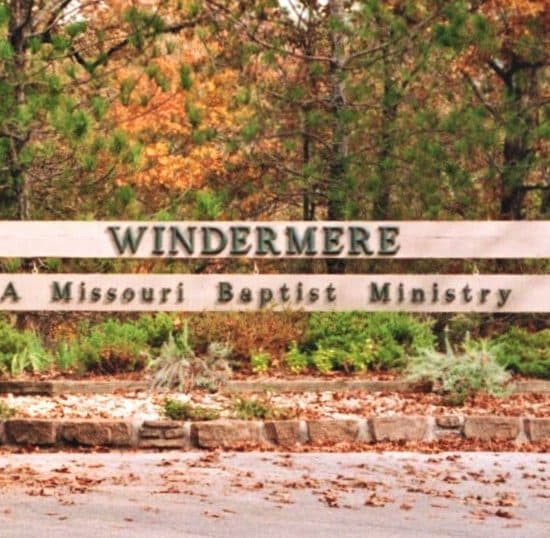By Bill Webb
Word&Way Editor
Word&Way Editor
Oral arguments have been scheduled for 9 a.m. on Nov. 25 before the Western District Court of Appeals in Kansas City in the Missouri Baptist Convention’s case against Windermere Baptist Conference Center.
And one of the three judges assigned to hear the case has recused himself because of his relationship with MBC lead attorney Michael Whitehead.
The convention is contesting Cole County Judge Richard Callahan’s March 4 ruling that Windermere’s trustees acted legally when they changed its articles of incorporation. Whitehead filed the convention’s legal brief with the Court of Appeals on July 22.
The appeal is the latest round in legal action the MBC took against Windermere, The Baptist Home, Missouri Baptist University, Word&Way and the Missouri Baptist Foundation in an effort to force the entities to rescind changes they had made in their corporate charters. The Home changed its articles of incorporation in 2000 to elect its own trustees. The other four took the same action in 2001. The convention filed suit on Aug. 13, 2002.
The three judges originally assigned to hear the appeal on Nov. 25 were Chief Judge Thomas H. Newton, Judge James Edward Welsh and Judge James M. Smart Jr.
Judge Smart recused himself from the case, and his replacement had not been named when Word&Way went to press. Whitehead and Judge Smart became law partners 30 years ago, forming in 1978 a Kansas City firm known as Smart and Whitehead.
They handled a case before the U.S. Supreme Court in 1981, Widmar v. Vincent, in which the Court upheld the right of college students to have equal access to the university student union at the University of Missouri-Kansas City for Bible studies and prayer meetings. The High Court ruled in favor of the students, represented by Smart and Whitehead.
Attorneys for Windermere learned that Judge Smart had already recused himself when they raised the issue last week with the clerk of the appeals court.
“The Rules Governing the Missouri Bar and the Judiciary — Code of Judicial Conduct” is a code of ethics for judges and it addresses the matter of judicial recusal — or withdrawal from a case.
According to the code, “A judge shall recuse in a proceeding in which the judge’s impartiality might reasonably be questioned,” including a case in which the judge served as a lawyer in the matter or a lawyer with whom the judge previously practiced law served as a lawyer in the matter.
The latter apparently was the basis upon which Judge Smart recused himself from the case.
The issue of recusal was raised after the fact when the Court of Appeals overturned in May 2005 Cole County Circuit Judge Thomas Brown’s dismissal of all five cases a year earlier.
Some observers felt two of the three judges in that appeal should have recused themselves in the matter, citing potential conflicts of interest. Both have since left the bench.
One of them, Judge Edwin Smith, was a member of Green Valley Baptist Church, which is affiliated with the Missouri Baptist Convention. Pam Mason, the wife of the pastor of Green Vaalley, has served as the second vice president of the MBC and as a member of the convention’s Legal Task Force, the committee that recommended the lawsuits in the first place and still gives oversight to it.
Judge Smith’s colleague at the time, Judge Robert G. Ulrich, served on the board of Midwestern Baptist Theological Seminary, which began receiving direct support from the MBC in 2004. In addition, Whitehead formerly served as vice president and acting president of Midwestern.
Judge Smith left the bench in July 2007 to join the law firm of Shughart, Thomson & Kilroy. Judge Ulrich left the bench in August 2007 to take a position to teach law at Liberty University.
Judge Callahan made a decision to try the cases against the five institutions individually, starting with Windermere. After ruling in favor of the conference center, he placed on hold the remaining four cases until completon of the Windermere appeal process.
In August, the case against the five entered its seventh year.





